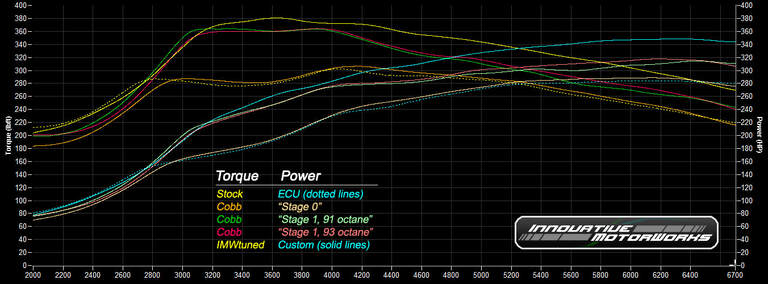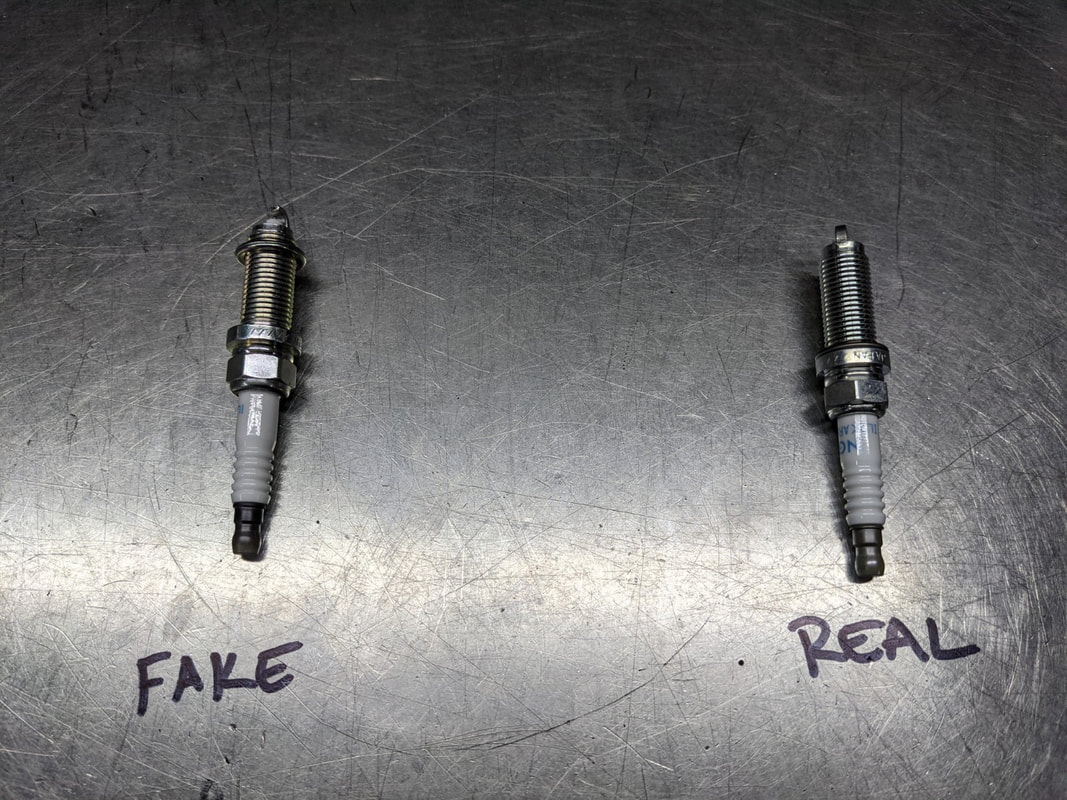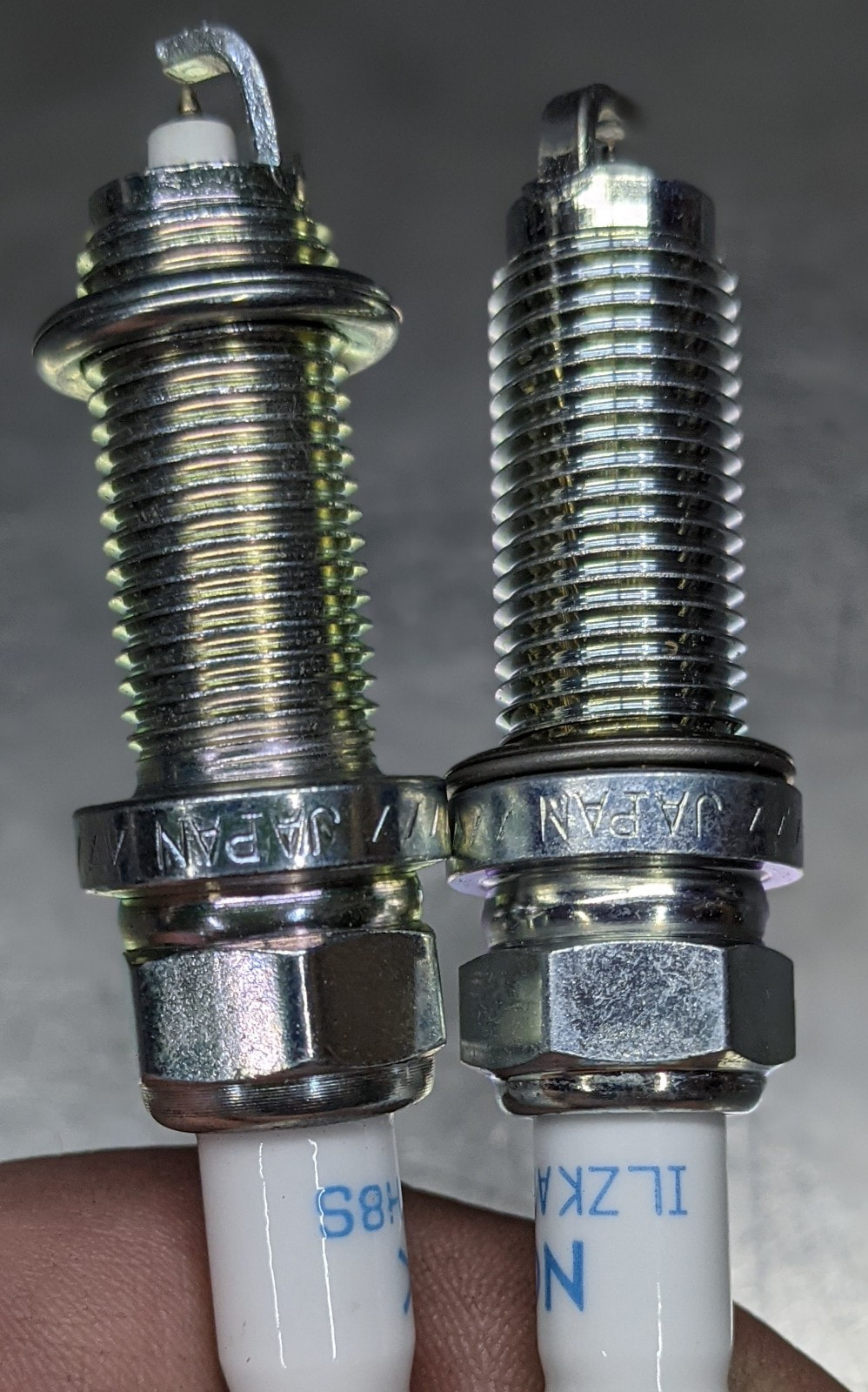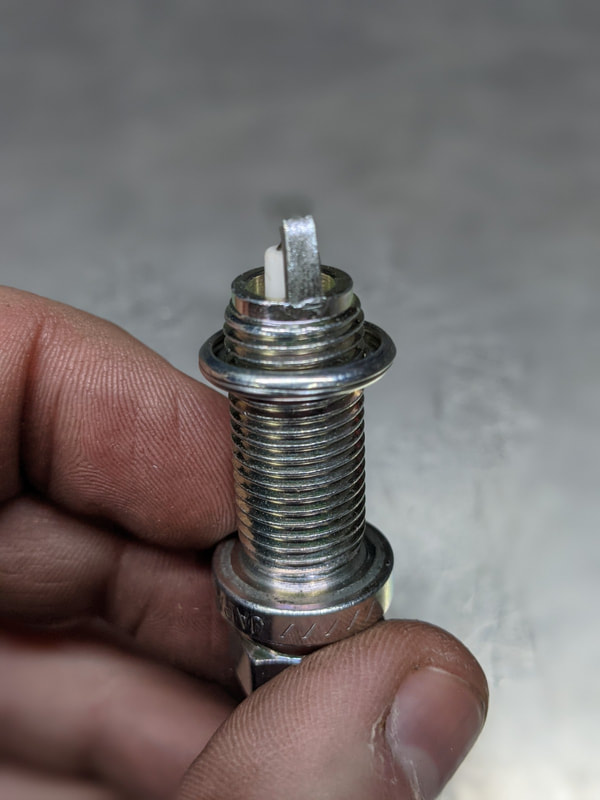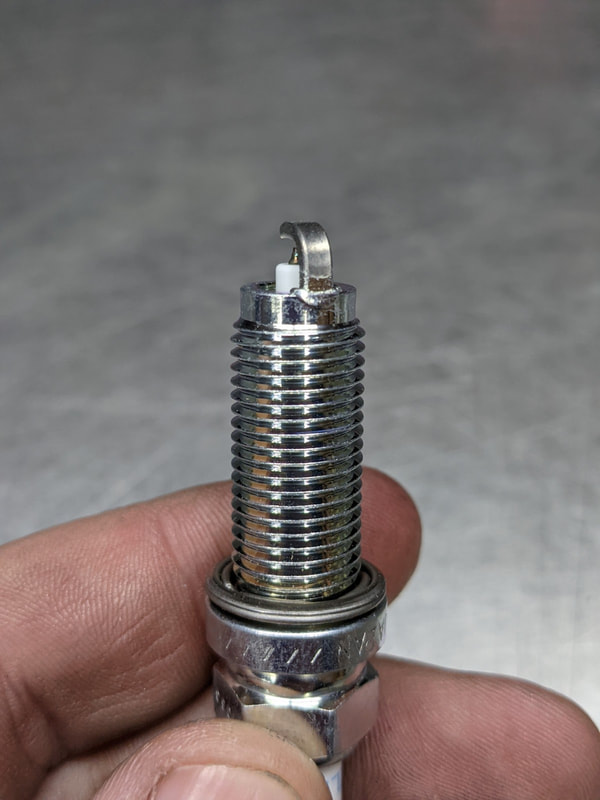AuthorDerek Robinson Archives
January 2024
Categories |
Back to Blog
Four score and seven years ago (jk, it was really only a little over a decade ago), Cobb Tuning set out to enter the Honda tuning market with flash support for the popular 8thGen Civic Si.
If you're too young to remember Cobb's early foray into Honda flashing (I'm looking at you, Generation-Z-aged enthusiasts), you're not alone. While their offering was adequate for the time, it failed to gain the traction it needed to survive and thrive in a market dominated by a competitor that rhymes with "blonde batta." Over the years, support was quietly abandoned by Cobb and the fleeting moment in time where a few forum members' signature "mod lists" included those four letters slowly disappeared into the archives and forgotten. Years later, we now exist in a strange alternate reality where some Honda Civics are turbocharged, tout the legendary red H emblem in the U.S. market, and have European ECUs. Given the popularity of the FK8 Civic Type R, it's no surprise that Cobb wanted to jump back in for a swim. So, what's it like? Join me, if you will, as I give you a quick-and-dirty rundown of the new kid on the block's highs and not-so-highs as of this writing (first week of January, 2024). At $725 retail, the AccessPort (Cobb AP3-HON-001) comes in between the two other popular options on the market (KTuner and Hondata) in terms of hardware cost. One of the big advantages Cobb has is that everything necessary to "unlock" or "jAiLbReAk" the Bosch MED 17.9.3 ECU at no additional cost to the consumer, which is something that has been traditionally been an extra $250 (or more, if you have a '20-'21 model and have to use Hondata's extra CAN gateway bypass module for their "instant jailbreak") expense on top of the flash hardware for this vehicle. Everything needed to prepare the ECU for flashing is included with every FK8-specific AccessPort. The unlocking process with the unit is quick and easy, and you can honestly unlock and flash a pre-loaded calibration in just a few minutes from the time you unpack the thing. Pro, for sure. ***I'd like to preface this next part with a sincere warning that it is my opinion and only a reflection of this early release status. My communications with Cobb over the last couple weeks have been enlightening, and their willingness to improve support for this vehicle is strong.*** The Software: The AccessTuner software is uh... Kind of like using a universal editor. If you're used to tuning with Hondata or KTuner's software, be prepared for a bit of a shock here. The look and feel is basic, sterile, rigid. There's a fixed menu tree on the left of the screen for map navigation (which is fine, KTuner is like this as well), but there's a lack of freedom when it comes to the amount of things you can view at once and toggle between quickly. Do you like 3D table graphs? Good, because that's what you get if the table has an axis set that matches that; there's no option to view a 2D or 3D form of the same table. You cannot move things to your liking visually. There is one option to view live data from the ECU, and it's a big block of text gauges that you cannot arrange in a manner you'd like. You cannot group these values visually close to one another. Do you like the alphabet? Great! The gauges are arranged solely in A-Z order, next to each other. What if you want to shove Engine Speed next to MAP next to AFR next to ECT next to Knock Retard? Tough luck. You cannot resize things you want to highlight as more important at a glance, you can't setup any "dial" gauges, you cannot setup any "bar" gauges, etc. The "dashboard" viewing of live data (which has a numerical limit to the number of things you can view live, mind you) might be one of the worst parts of the software... That is, until it comes time to view the datalog you just recorded. Cobb's own "Data Log Viewer" is literally a spreadsheet of your recorded data. There is no graphing within the software, so that naturally means there is no tracing against the maps to see what cells may be referenced at any given time. Perhaps I'm spoiled by years of software that allows for viewing of recorded information directly within the same program where the calibration is being edited, but man... It makes life reaaaaaaally nice when you can scroll through a log, quickly see the area of a map that's being referenced, and make a change quickly. To view your AccessTuner datalogs in a graph form, you must use a third party software, then flip-flop between said external program and the editor, which may not sound like a big deal, but it certainly adds time to the job. This may not be a big deal to the casual user, but if you're doing this kind of thing for a living, time is money, and the more time spent clicking around windows is a bit tiresome. I will give AccessTuner incredibly high marks for it's GREAT "compare" feature that feels very familiar to the same kind of function in HP Tuners. The "import tables" function is organized well, and allows for multiple table migration into a new file a breeze. If you want to transfer a bunch of tables into a new ECU software ID number (between vehicle model years, for example), these functions are superb compared to some others. The number of channels you can select to record for a datalog is limited, but it logs them at a VERY fast rate. For "Pro" tuners, there's the ability to lock calibrations to hardware serial numbers as well as keep important values hidden from the end user with lower permissions. You can also lock to specific accounts, which is a nice feature to protect your work. Actual tuning support for the FK8 platform: Here's probably what everyone really wants to know... What can you do with it, from the standpoint of "tuning"? As of right now, there is absolutely no "custom code" features in place that don't exist natively in the stock ECU. That means there is no FlexFuel sensor support, no ignition-based traction control, no in-use map switching. At this point in time (again, I am writing this in early January 2024), Cobb's support is very similar to that of KTuner's support of the FK8 Civic Type R, or if you were to use something like WinOLS to tune one of these. The factory throttle-closing traction control is okay, but I know for a fact that a lot of users really like the fast-reacting ignition traction control that Hondata has offered for a while. You can still tune for ethanol, of course, but it would involve having specific calibration files for specific blends (kind of an old-school way of doing things in 2024). Oh, and there's no stupid "fuel pump activation code" needed here. There's access to all fuel pump controls natively. One of the best things about Cobb's offering is the fact that there's no nickel-and-dime paywall for important tables. The ECU isn't some fucking clickbait New York Times article... you shouldn't have to pay a troll toll to see/edit something, Hondata. Cobb's FK8 support does not allow for the disabling of certain DTC numbers. Cobb's "Green Speed" philosophy is nice and compliant, so if you aren't exactly as "clean" as you should be, you might have some neat yellow illumination in your life if you choose to use the AccessPort. OK, so how much power does it make, bro? My test car was a 2019 Civic Type R, with the only modification being an aftermarket AWE exhaust. Here in central Pennsylvania, we have 93oct (E10) gasoline, so all tests were performed on such. The best stock ECU baseline run came in at 283hp / 302tq, a pretty average output for one of these cars on this machine. Testing on Cobb's "Stage 0" map made a few more, at 288hp / 306tq, although when using the "compare" function, this matches the "stock" file, so the difference in power may have been the decent cooldown between the baseline tests, time spent unlocking the ECU, configuring the AccessPort, and reflashing. Cobb's "Stage 1" maps ended up real closely to one another. The "91oct" map made 314hp / 363tq, and the "93oct" variant picked up a few to give us 318hp / 363tq. Compared to the average results from the other popular "free" files from Hondata and KTuner, these were a little underwhelming, but they probably feel pretty great from the driver's seat with large midrange torque gains (common on these anyway). Finally, it was time to see where we could go with it with some of the same-old-song-and-dance knowledge accumulated over the last couple years of experience in the platform. Custom changes resulted in a pretty huge gain everywhere, resulting in a final figure of 350hp / 381tq. TLDR? I got you. The Cobb AccessPort is a decent entry-level solution for the tuning FK8 at this time (and for the third time in this manifesto, I am writing this in early 2024, so don't quote this someday when some of this stuff probably changes). At the price point, it's a great deal for the guy that has bolt ons and pump gas (free ECU unlocking, nice hardware with a display, etc). Do I think it's a viable option for guys that need FlexFuel support, which is a HUGELY popular feature Hondata has had for years? Not yet. Cobb tells us that certain features are in the pipeline for the near future, though, and I'm inclined to believe them given the level of transparency they've extended to me recently. With this being said, I'll be adding Cobb AccessTuner (Honda) services to the list of supported systems in the coming days for in-house, remote access, and e-calibration services. We are an official "Pro tuner" with Cobb for this platform. Enjoy!
Back to Blog
The High Cost of Low Price1/26/2021 In 2021, we're living "fake."
Our bodies are fake. Our news media is fake. Our food is fake. Our politicians are fake (although that's nothing new). Our money is fake. It's no surprise that we now have fake "NGK" spark plugs marketed as the real thing offered at a significantly lower rate than normal suggested retail pricing. NGK is one of the largest, most recognizable spark plug manufacturers on the planet, and they are standard equipment on nearly every modern Honda/Acura product. Spark plugs are in every gasoline-powered engine on the planet, meaning the market is huge; so huge that if counterfeiters were to snatch as little as 0.1% of NGK's yearly sales, they'd be looking at millions of dollars a year in revenue. Now that you know the incentive for these guys, what can you do? Learn to spot the fakes. Let's touch on a few points.
What's the big deal, though? There's plenty of "fake" products on the market that "work just as well" as their authentic counterparts, right? Unfortunately, these don't, especially when we're talking about an engine that is driven hard... these counterfeit plugs fail pretty spectacularly. Often, they lack the ability to properly dissipate heat into the cylinder head, leading to detonation in the cylinder, and/or cracking, and melting of the plug itself. When these things happen, the spark plug is not the only casualty. I've seen coilpacks roasted, pistons damaged, and cylinder head castings crack as a result of this. So how do you avoid even getting yourself in this situation? Source your plugs from an authorized retailer that purchases directly from NGK (like most big-name auto parts stores), and the likelihood of ending up with fake spark plugs gets much lower.
Back to Blog
What to choose?12/19/2020 You bought yourself a shiny new (or new-to-you) tenth generation Honda Civic or Accord, and you're looking to modify it. Great! What's the best bang for the buck modification you can do? Tuning, of course.
These cars are a ton more fun with a tune. That being said, you have options when it comes to reflashing the factory ECU. Over the course of the last couple years, I've had the opportunity to get very well-acquainted with these options. Let's get right to the pro's and con's of the popular reflash options. Hondata FlashPro Advantages:
Disadvantages:
Verdict?
KTuner Advantages:
Disadvantages:
Verdict?
Once more, this post is the culmination of experience amassed from the literal thousands of 10th Gen Civic and Accords I've had a hand in tuning (custom tunes, off the shelf tunes, and several starting calibrations I've aided in developing for numerous companies that focus on these vehicles), and there's nothing I'd like more than to see the "disadvantages" for all mentioned to be addressed by their respective manufacturers. I tune Hondata and KTuner products both every single day, and want people to make informed decisions based on facts, not just based on bandwagon tactics or social media "influencers". Thank you. - Derek |

 RSS Feed
RSS Feed
